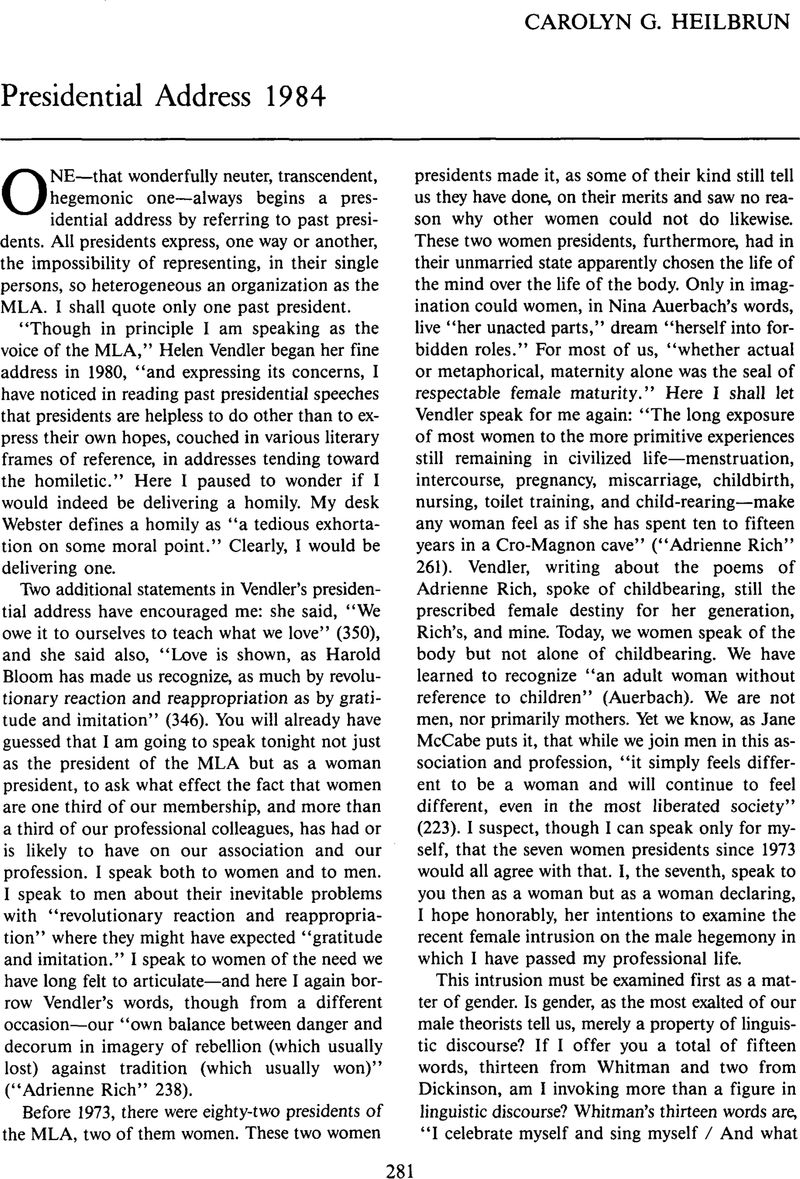Crossref Citations
This article has been cited by the following publications. This list is generated based on data provided by Crossref.
Capo, Kay Ellen
and
Hantzis, Darlene M.
1991.
(En)gendered (and endangered) subjects: Writing, reading, performing, and theorizing feminist criticism.
Text and Performance Quarterly,
Vol. 11,
Issue. 3,
p.
249.
Hutcheon, Linda
2001.
Presidential Address 2000: She Do the President in Different Voices.
PMLA/Publications of the Modern Language Association of America,
Vol. 116,
Issue. 3,
p.
518.



